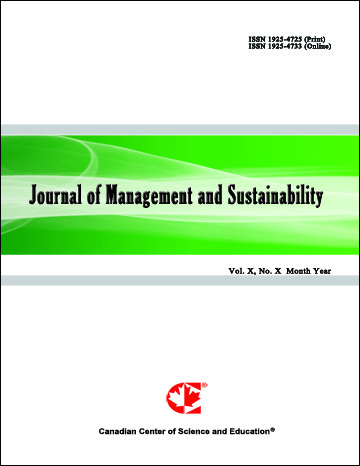Subsidizing Human Capital to Overcome the Green Paradox—A Demand-Side Approach
- Arne Steinkraus
Abstract
This paper shifts the perspective of the recent green paradox literature towards the demand side. Based on a simple model, I show that a subsidy on input factors in a Cobb-Douglas production functionmay contribute substantially to postponing resource extraction into the future and, thereby, to limit the future costs of climate change. Specifically, indirect subsidies on human capital, such as investments in education, are plausible policy options to mitigate carbon dioxide emissions because it is robust to short-sighted incentives on the part of politicians and resource owners.
- Full Text:
 PDF
PDF
- DOI:10.5539/jms.v6n4p1
Journal Metrics
Google-based Impact Factor (2021): 1.54
h-index (July 2022): 37
i10-index (July 2022): 147
h5-index (2017-2021): 12
h5-median (2017-2021): 19
Index
- Academic Journals Database
- ANVUR (Italian National Agency for the Evaluation of Universities and Research Institutes)
- CAB Abstracts
- CNKI Scholar
- EconBiz
- Excellence in Research for Australia (ERA)
- GETIT@YALE (Yale University Library)
- Harvard Library
- HeinOnline
- Infotrieve
- JournalTOCs
- LOCKSS
- MIAR
- PKP Open Archives Harvester
- RePEc
- Scilit
- SHERPA/RoMEO
- Stanford Libraries
- UCR Library
Contact
- Evelyn XiaoEditorial Assistant
- jms@ccsenet.org
